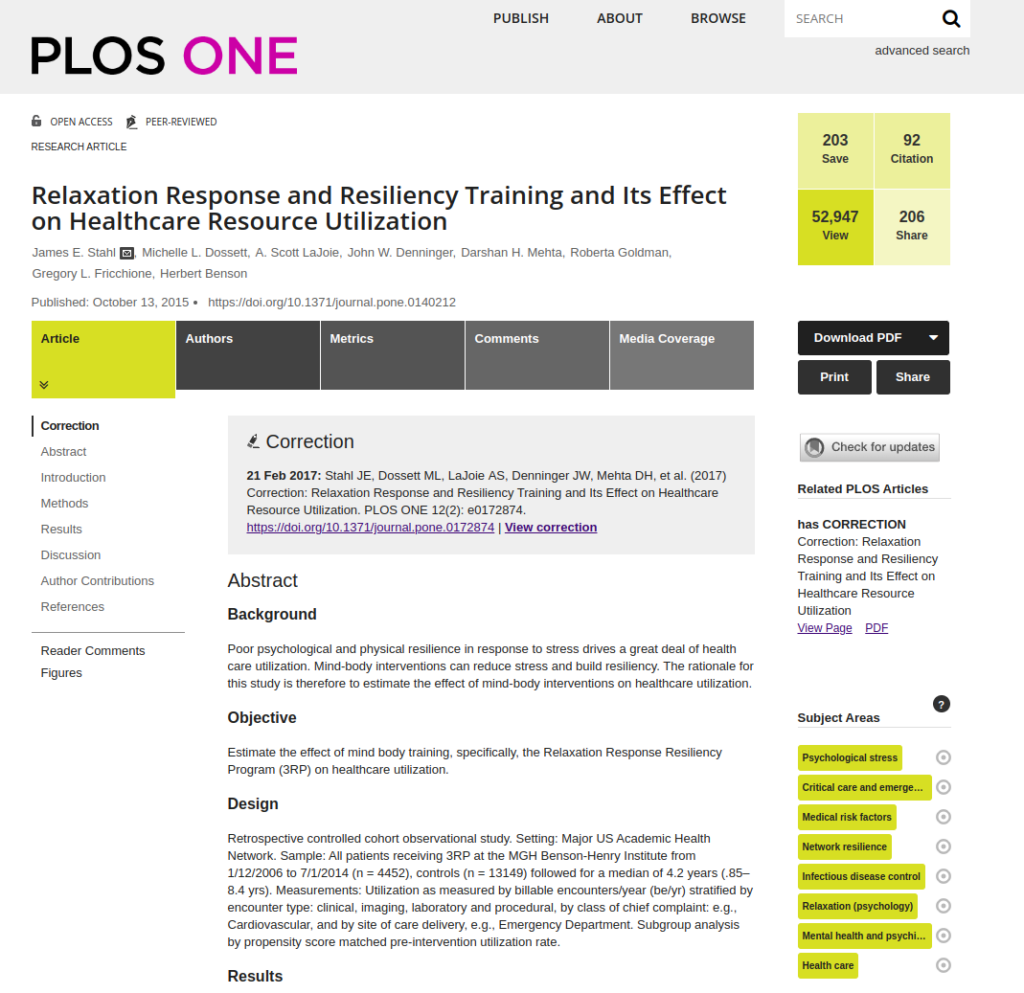Background
Poor psychological and physical resilience in response to stress drives a great deal of health care utilization. Mind-body interventions can reduce stress and build resiliency. The rationale for this study is therefore to estimate the effect of mind-body interventions on healthcare utilization.
Objective
Estimate the effect of mind body training, specifically, the Relaxation Response Resiliency Program (3RP) on healthcare utilization.
Design
Retrospective controlled cohort observational study. Setting: Major US Academic Health Network. Sample: All patients receiving 3RP at the MGH Benson-Henry Institute from 1/12/2006 to 7/1/2014 (n = 4452), controls (n = 13149) followed for a median of 4.2 years (.85–8.4 yrs). Measurements: Utilization as measured by billable encounters/year (be/yr) stratified by encounter type: clinical, imaging, laboratory and procedural, by class of chief complaint: e.g., Cardiovascular, and by site of care delivery, e.g., Emergency Department. Subgroup analysis by propensity score matched pre-intervention utilization rate.
Results
At one year, total utilization for the intervention group decreased by 43% [53.5 to 30.5 be/yr] (p <0.0001). Clinical encounters decreased by 41.9% [40 to 23.2 be/yr], imaging by 50.3% [11.5 to 5.7 be/yr], lab encounters by 43.5% [9.8 to 5.6], and procedures by 21.4% [2.2 to 1.7 be/yr], all p < 0.01. The intervention group’s Emergency department (ED) visits decreased from 3.6 to 1.7/year (p<0.0001) and Hospital and Urgent care visits converged with the controls. Subgroup analysis (identically matched initial utilization rates—Intervention group: high utilizing controls) showed the intervention group significantly reduced utilization relative to the control group by: 18.3% across all functional categories, 24.7% across all site categories and 25.3% across all clinical categories.
Conclusion
Mind body interventions such as 3RP have the potential to substantially reduce healthcare utilization at relatively low cost and thus can serve as key components in any population health and health care delivery system.

